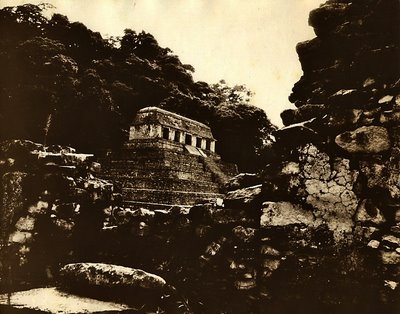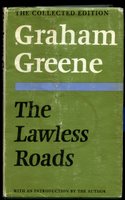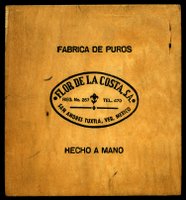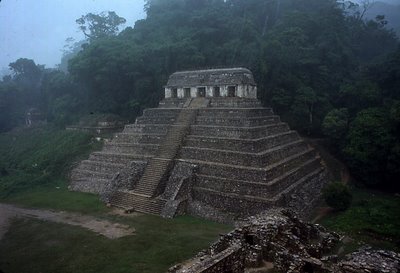"Ah-smiled the colonel- to be a gringo in Mexico. That is better than suicide. That is what the Old Gringo used to say.
Gringo Viejo - Carlos Fuentes

One of Graham Greene's few books that I never managed to read until recently was his 1939 account of his trip to Mexico, The Lawless Roads. I had heard of this book and perhaps because he is so negative on Mexico I was never ever able to find a copy in Mexico during my years there. This last week I corrected my omission and bought a hardcover 1978 edition at MacLeod's Books on 455 West Pender.
There are many who assert that Greene traveled to Mexico to avoid being extradited for libel as Mexico lacked an extradition treaty with Great Britain.
Greene supplemented his novelist's income with freelance journalism, book and film reviews for The Spectator, and co-editing the magazine Night and Day, which folded in 1937 shortly after Greene's film review of Wee Willie Winkie , featuring nine-year-old Shirley Temple, cost the magazine a lost libel lawsuit. Greene's review claimed that Temple displayed "a certain adroit coquetry which appealed to middle-aged men". This statement is now considered one of the first criticisms of the sexualisation of children for entertainment. The criminal libel could have led to Greene's imprisonment, and its avoidance, according to Greene's friend Alberto Cavalcanti in an unpublished autobiography, was the motivation for the visit to Mexico which was to inspire The Power and the Glory.

Mr. Tench went out to look for his ether cylinder, into the blazing Mexican sun and the bleaching dust. A few vultures looked down from the roof with shabby indifference: he wasn't carrion yet. A faint feeling of rebellion stirred in Mr. Tench's heart, and he wrenched up a piece of the road with splintering finger nails and tossed it feebly towards them. One rose and flapped across the town: over the tiny plaza, over the bust of the ex-president, ex-general, ex-human being, over two stalls which sold mineral water, towards the river and the sea. It wouldn't find anything there: the sharks looked after the carrion on that side. Mr. Tench went on across the plaza.
The Power and the Glory
So in Villahermosa there is nothing to do all the long Sundays that go on and on but sit in Victorian rocking chairs, swinging back and forth waiting for the sunset and the mosquitoes. The vultures group themselves on the roofs like pigeons: tiny moron heads, long necks, faces like Carnival masks, and dusty plumages, peering this way and that attentively for a death. I counted twenty one on the roof. They looked domesticated, as if they were going to lay an egg. And I suppose even a bird of prey does sometimes lay an egg.
The Lawless Roads
I went for a walk on shore; nothing to be seen but one little dusty plaza with fruit-drink stalls and a bust of Obregón on a pillar, two dentists' and a hairdresser's. The vultures squatted on the roofs. It was like a place besieged by scavengers - sharks in the river and vultures in the streets.
The Lawless Roads.
Greene picks the jungle isolated (more so in 1938) ruins of Palenque in the State of Chiapas as his "Holy Grail" excuse to venture into a country he spends much time describing his loathing for.

I had been in Palenque, too in the late 70s and it seems after reading Greene's description things had not changed much. The heat was almost unbearable. I was chain-smoking Flor de la Costa cigars from Veracruz to keep the mosquitoes at bay. The ruins were deserted, too. But unlike Green I experienced a fine and cooling tropical rain sheltered inside the Temple of the Inscriptions. When I rendered my photograph of it into a sepia colour I almost think it is much as Greene saw it.

Well, I had told people I was here in Chiapas to visit the ruins and I had visited them; but there was no compulsion to see them, and I hadn't the strength to climb more than two of the slopes and peer into two of the cold snaky chambers. I thought I was going to faint; I sat down on a stone and looked down - at trees, and nothing but trees, going on and on out of sight. It seemed to me that this wasn't a country to live in at all with the heat and the desolation; it was a country to die in and leave only ruins behind.
The Lawless Roads
When I happen to walk around Coal Harbour and other new condominium areas of Vancouver and I note the brand newness of everything, that metalic surgical clean, and the high technology entry systems I long for the humidity, the heat and even the "cold snaky chambers" of Palenque. I long for Mexico but unlike Greene, but like his journalist colleague Ambrose Bierce (as described beautifully in Carlos Fuentes' novel El Gringo Viejo), I would be prepared to die there.
Night and Day, October 28, 1937 The Films by Graham Greene
Wee Willie Winkie
The owners of a child star are like leaseholders — their property diminishes in value every year. Time's chariot is at their backs: before them acres of anonymity. What is Jackie Coogan now but a matrimonial squabble? Miss Shirley Temple's case, though, has peculiar interest: infancy with her is a disguise, her appeal is more secret and more adult. Already two years ago she was a fancy little piece — real childhood, I think, went out after The Littlest Rebel. In Captain January she wore trousers with the mature suggestiveness of a Dietrich: her neat and well-developed rump twisted in the tap-dance: her eyes had a sidelong searching coquetry. Now in Wee Willie Winkie, wearing short kilts, she is a complete totsy. Watch her swaggering stride across the Indian barrack-square: hear the gasp of excited expectation from her antique audience when the sergeant's palm is raised: watch the way she measures a man with agile studio eyes, with dimpled depravity. Adult emotions of love and grief glissade across the mask of childhood, a childhood skin-deep.
It is clever but it cannot last. Her admirers — middle aged men and clergymen — respond to her dubious coquetry, to the sight of her well-shaped and desirable little body, packed with enormous vitality, only because the safety curtain of story and dialogue drops between their intelligence and their desire. "Why are you making my Mummy cry?" - what could be purer than that? And the scene when dressed in a white nightdress she begs grandpa to take Mummy to a dance - what could be more virginal? On those lines in her new picture, made by John Ford, who directed The Informer, is horrifyingly competent. It isn't hard to stay to the last prattle and the last sob. The story — about an Afghan robber converted by Wee Willie Winkie to the British Raj — is a long way after Kipling. But we needn't be sour about that. Both stories are awful, but on the whole Hollywood's is the better.
In 1947 John Ford directed The Fugitive , a film based on Greene's Power and the Glory.






